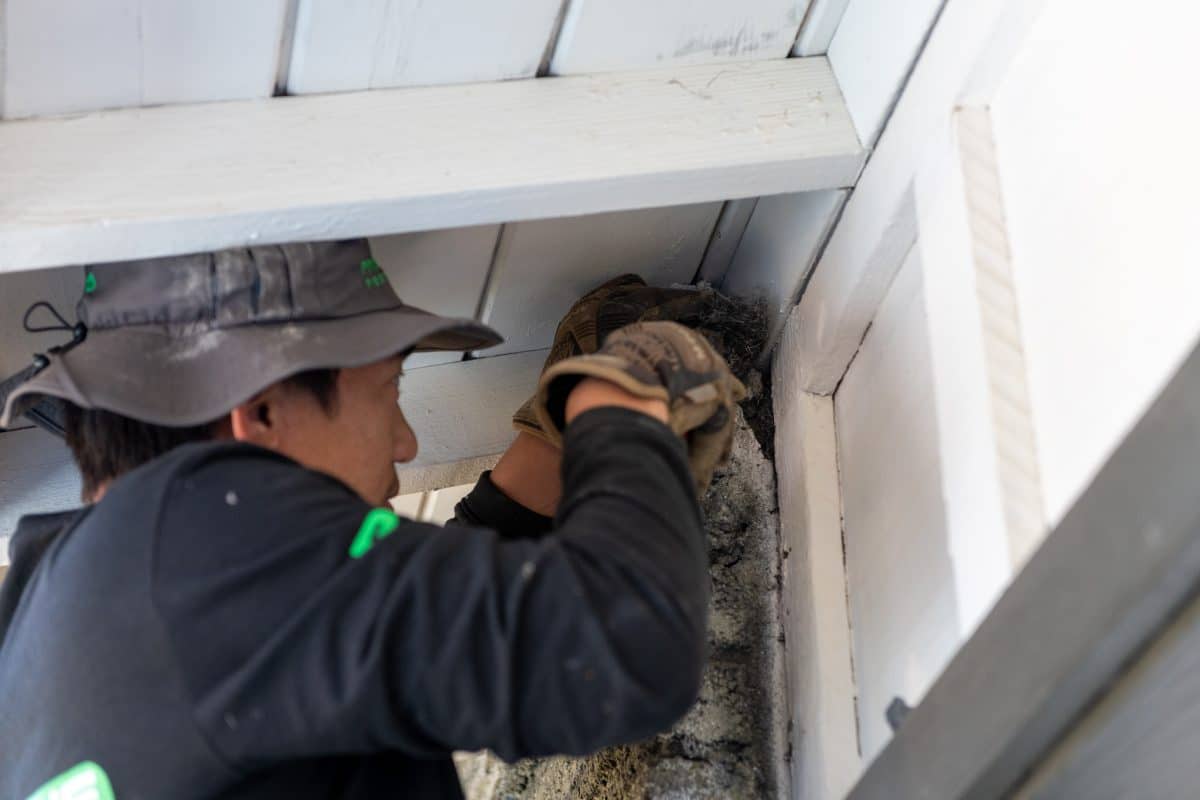Mice are common household pests that can cause a range of problems, from property damage to health risks. Dealing with a mouse infestation requires a proactive and strategic approach to ensure the safety of your family and pets while effectively eliminating the rodents from your home. In this comprehensive guide, we’ll discuss various methods and strategies to safely and effectively deal with mice in your home.

Table of Contents
Understanding the Problem
Before diving into solutions, it’s crucial to understand why mice are attracted to your home and the potential risks they pose. If thinking to eliminate rodent problems, you should know that mice are drawn to residential areas primarily for food, water, and shelter. They can enter your home through small openings, gaps, or cracks in walls, floors, and foundations. Once inside, they can quickly reproduce and establish nests in hidden areas like wall voids, attics, and basements.
Aside from being a nuisance, mice can pose several health risks:
Disease Transmission: Mice can carry diseases such as Hantavirus, Salmonellosis, and Leptospirosis, which can be transmitted to humans through contact with mouse droppings, urine, or saliva.
Allergies and Asthma: Mouse droppings and dander can trigger allergies and exacerbate asthma symptoms, especially in sensitive individuals.
Property Damage: Mice gnaw on various materials, including wood, plastic, and insulation, leading to structural damage and potential fire hazards if they chew on electrical wiring.
Identifying Mouse Infestations
Detecting a mouse infestation early is key to preventing further damage and health hazards. Here are some signs that indicate you may have mice in your home:
Droppings: Mouse droppings are small, pellet-like, and usually found near food sources, in cabinets, drawers, or along walls.
Gnaw Marks: Mice gnaw on objects to wear down their teeth. Look for gnaw marks on food packaging, wires, and wooden structures.
Nesting Materials: Mice use materials like shredded paper, fabric, and insulation to build nests. Check hidden areas for signs of nesting activity.
Scratching Noises: Mice are active at night and may produce scratching or squeaking noises, especially in walls, ceilings, or under floors.
Foul Odor: A musty or ammonia-like odor may indicate the presence of mouse urine or droppings.
Safe and Effective Mouse Control Methods
Once you’ve confirmed a mouse infestation, it’s essential to address the problem promptly and effectively. Here are several safe and effective methods for dealing with mice in your home:
Seal Entry Points
Begin by inspecting your home for potential entry points and sealing them to prevent mice from entering or re-entering. Use caulk, steel wool, or wire mesh to seal gaps around pipes, vents, doors, and windows. Pay attention to areas where utility lines enter your home, as mice can squeeze through tiny openings.
Remove Food Sources
Mice are attracted to food sources, so keeping your kitchen and pantry clean and organized is crucial. Store food in airtight containers, promptly clean up spills and crumbs, and dispose of garbage regularly in sealed bins. Avoid leaving pet food out overnight, as it can attract mice and other pests.
Set Traps
Traps are effective for catching and removing mice from your home. Choose from snap traps, electronic traps, or humane traps, depending on your preferences. Place traps along walls, near entry points, or in areas where you’ve noticed mouse activity. Check traps regularly and dispose of captured mice promptly.
Use Natural Repellents
Several natural repellents can deter mice from entering your home. Peppermint oil, cedarwood chips, and vinegar are known for their mouse-repelling properties. Soak cotton balls in peppermint oil or place cedarwood chips in strategic locations to discourage mice. Refresh the repellents periodically for maximum effectiveness.
Consider Ultrasonic Repellent Devices
Ultrasonic-repellent devices emit high-frequency sound waves that are unpleasant to mice and other rodents, driving them away from your home. These devices are safe for humans and pets, making them a non-toxic alternative to chemical repellents. Place ultrasonic devices in rooms where mice are active for optimal results.
Practice Good Hygiene
Maintaining good hygiene habits can help prevent future mouse infestations. Keep your home clean and clutter-free, vacuum regularly, and sanitize food preparation areas. Seal gaps around plumbing fixtures and repair any leaks to eliminate water sources that attract mice.
Seek Professional Help
If you’re dealing with a severe or persistent mouse infestation, consider seeking assistance from pest control professionals. They have the expertise, tools, and resources to assess the extent of the infestation and implement targeted eradication methods while ensuring the safety of your family and pets.
Safety Precautions
When dealing with mice in your home, always prioritize safety to avoid potential hazards. Here are some safety precautions to keep in mind:
Wear Gloves and Masks: When handling mouse traps or cleaning up droppings, wear disposable gloves and a mask to protect against contact with pathogens.
Proper Disposal: Dispose of trapped mice in sealed plastic bags and place them in outdoor trash bins to prevent contamination and odors indoors.
Keep Pets Away: If using chemical repellents or traps, ensure they are placed out of reach of pets to prevent accidental ingestion or exposure.
Read Labels: Follow instructions carefully when using repellents, traps, or cleaning products to avoid misuse and potential health risks.

Dealing with mice in your home requires a multi-faceted approach that combines prevention, exclusion, and targeted control methods. By understanding the reasons for mouse infestations and implementing safe and effective strategies, you can protect your home and family from the risks associated with these pests. Remember to prioritize safety at all times and consider seeking professional assistance for severe infestations. With proactive measures and diligence, you can successfully manage and eliminate mice from your living space, ensuring a safe and healthy environment for everyone.
- About the Author
- Latest Posts
Whether she is researching the latest trends in home decor, life-changing destination getaways, or the best way to maintain your finances, Dewey takes pride in leaving no stone unturned. She is passionate about distilling and delivering high-quality information that you can use to upgrade your life.

